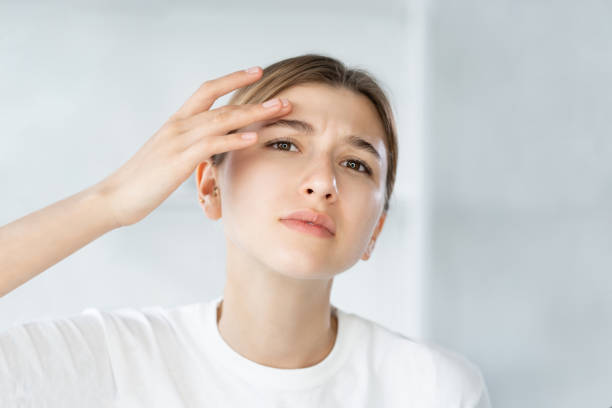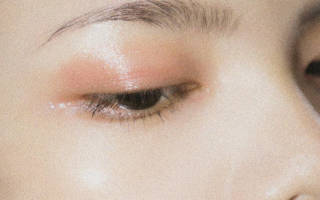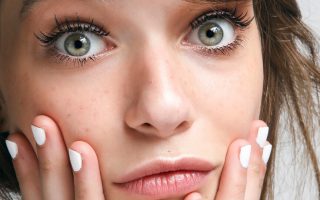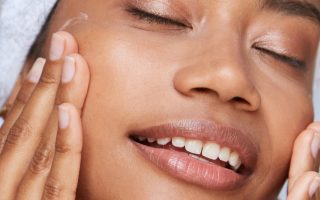Are you struggling with skin breakouts? If you answer yes, you might be doing something wrong; find out the reason for persistent acne breakout despite all effort in getting rid of it in this acne myth expose.
1: Pimples are caused by dirtiness
You may be wondering: why don’t I have to wash my face more than twice a day, or what if I’m still breaking out after washing my face? Let’s bust some myths about acne.
Myth 1: Pimples are caused by dirtiness
Pore clogging is caused by your body producing too much oil, not by the dirt you see on your skin. Over washing will only irritate your skin and increase pore-clogging oil production. This can lead to a vicious cycle of washing your face clearly but constantly feeling dirty and wanting to wash it again. You should still practice good hygiene, of course, but pimples aren’t caused by dirtiness!
Myth 2: Over-washing the face

Washing your face is a great, easy way to help acne. But if you’re over-washing your skin—or using harsh products to cleanse your skin—you could be making things worse.
Keep in mind that there are different types of cleansers. Some are gentle and ideal for daily use, while others are designed to be used just once or twice a week. The best type of cleanser for your acne-prone skin depends on how oily your skin is and how sensitive it is to products like benzoyl peroxide.
Myth 3: Toothpaste is an effective method for pimples
Toothpaste is a popular home remedy, but it’s important to be careful when trying it. Some people have reported that applying toothpaste to their pimples has worked for them. However, there are many different kinds of toothpaste with different ingredients, and some of those ingredients can actually cause irritation on the skin or make acne worse.
If you do decide to try this method, look for a toothpaste without baking soda or peroxide, since these can irritate the skin. You should apply a small amount of the toothpaste directly onto your pimple for about 10 minutes before washing it off. If you don’t notice any irritation after 24 hours, try repeating this process at night until your pimple goes away.
It’s also important to note that there isn’t enough evidence to prove that this method works effectively on all types of acne or skin types.
Myth 4: It’s okay to pop your pimples
Popping pimples can also cause more acne to form. “You’re causing damage to your skin and likely introducing even more bacteria which will increase inflammation and lead to additional breakouts,” Dr. Shah says. Plus, you might see a whitehead at the surface of your skin, but when you pop it, the material inside is usually yellow or brown in color. That’s because it contains both bacteria and dead skin cells that have been sitting there for a while, increasing the likelihood of scarring from popping pimples. If you don’t know how to pop a pimple correctly (and truthfully—who does?), you’re just doing yourself harm.
You could end up with an infection if you’re not careful with popping your pimples too. “It’s possible that by picking at your skin you might introduce bacteria into the open wound causing an infection,” Dr. Shah says.
Myth 5: Acne only affects people with oily skin
Myth #5: Acne only affects people with oily skin.
We’re sorry to be the ones to tell you this, but acne can affect anyone, whether you have dry skin or not. The misconception that acne is primarily caused by oily skin is actually a little misguided. We know, oil gets a bad rap, but it’s not all bad. Your skin’s natural oils are essential for keeping your skin healthy and hydrated and protecting against infection. If you have dry skin and still experience breakouts, here’s what could be happening: your skin may lack moisturizing lipids (fats), which help protect the barrier of your skin by locking in moisture. If your lips aren’t “locking in” enough moisture, they could actually be producing more oil in an attempt to compensate—causing breakouts as a result!
Myth 6: Butter, groundnut and other oily foods cause acne.
It is not true that eating oily foods or butter will make acne worse. Parents often tell their children to stay away from oily foods so as not to make their acne worse, but this myth is unfounded. Acne is actually caused by a hormonal imbalance in the body.
If you don’t believe me, try this: eat three slices of groundnut cake and watch as your acne magically disappears.
Cleanliness is not a cure for pimples.
You’re not alone in thinking that your acne is caused by something you’ve done and therefore can be fixed with the right external intervention. Unfortunately, the link between what we do (or don’t do) to our skin and how it looks isn’t all that simple. You might have heard from a friend, relative or dermatologist that over-washing your face, using harsh soaps or topical treatments can make acne worse. While this was once believed to be true for some people, more recent research has shown that washing your face regularly—but gently—with non-irritating products can help decrease breakouts.
It seems like an easy fix: Cleanse away impurities and watch your acne vanish! In reality, however, washing too often or using the wrong facial cleanser may actually exacerbate pimples. Harsh soaps can strip away natural moisturizers found on our faces and in our bodies, which leads to flakiness and dehydration. If you’re living with dry skin on top of acne breakouts (which is totally possible), excessive cleaning could also lead to irritation and inflammation.
Don’t get us wrong: You should definitely wash your face regularly—it’s an important part of any skincare routine! But know that soap isn’t always necessary for cleansing; water will do just fine if you’re looking to be gentle on your skin. In fact, there are plenty of other ways to treat pimples without drying out the rest of your face or making it feel irritated.



